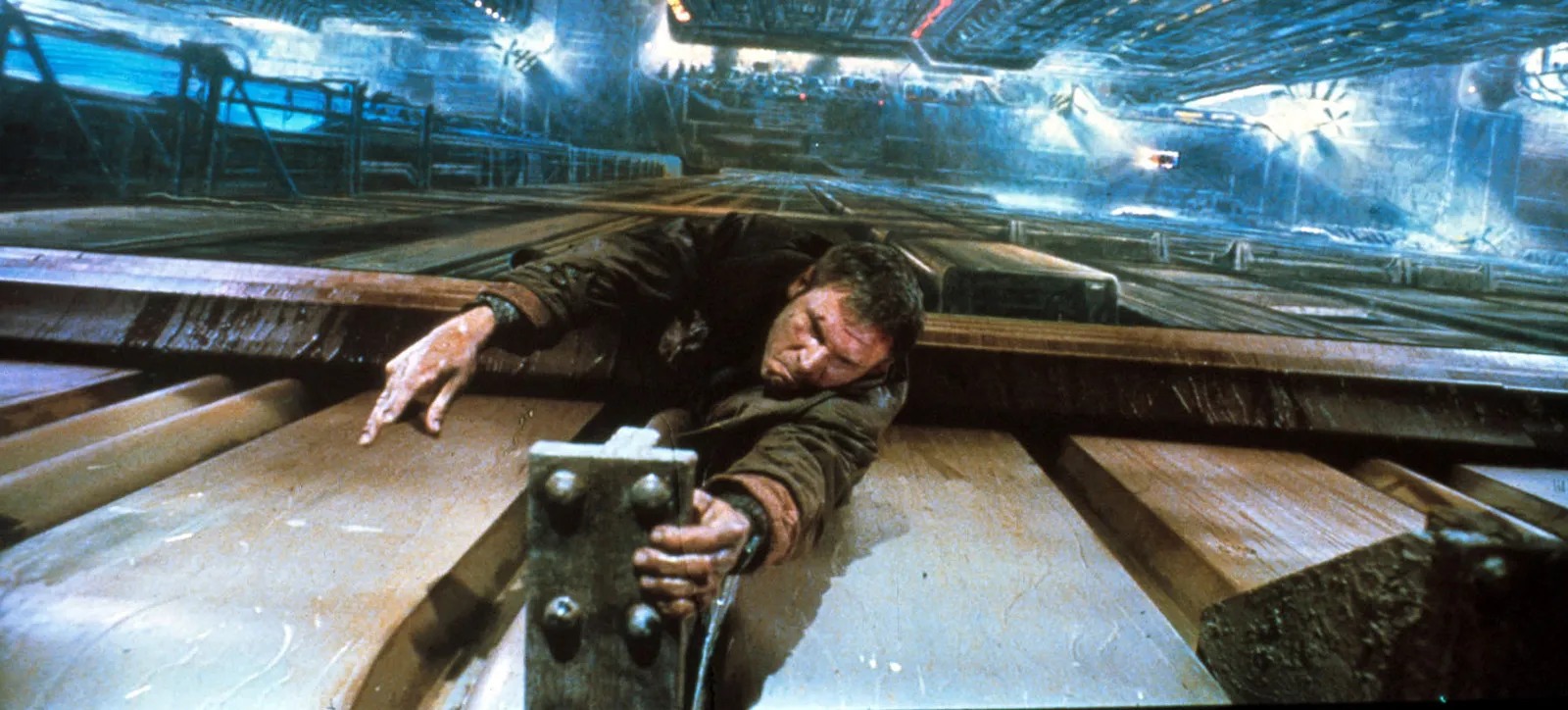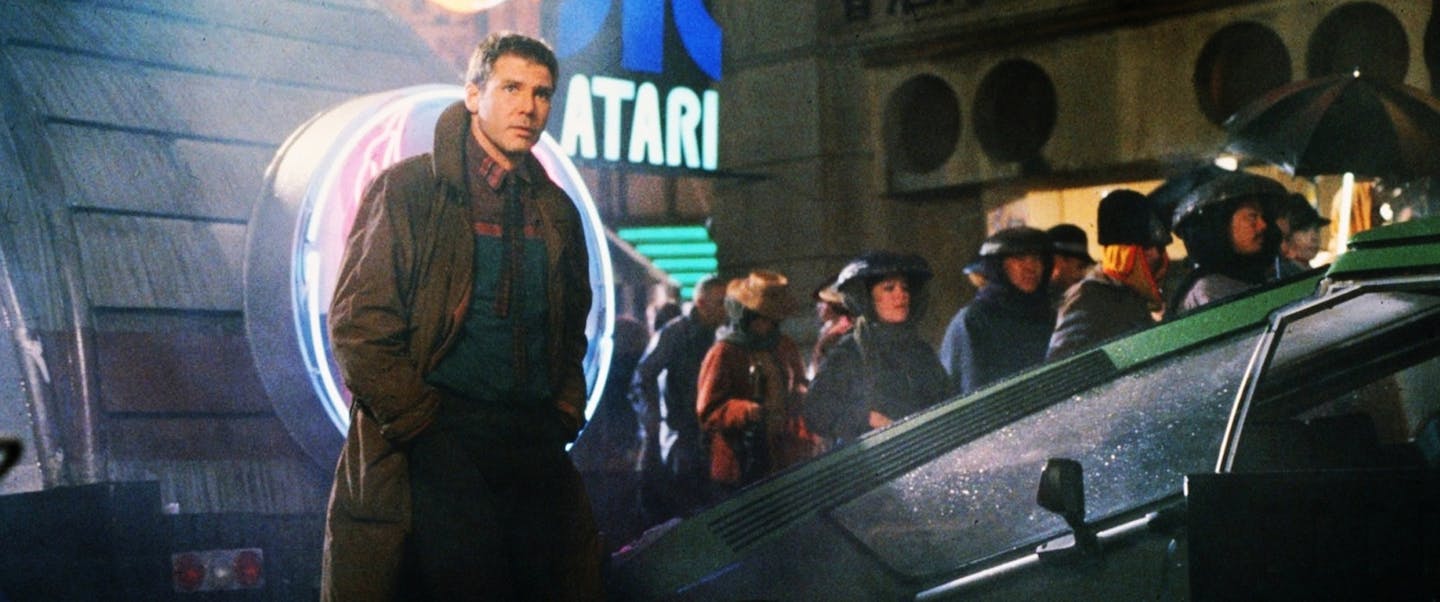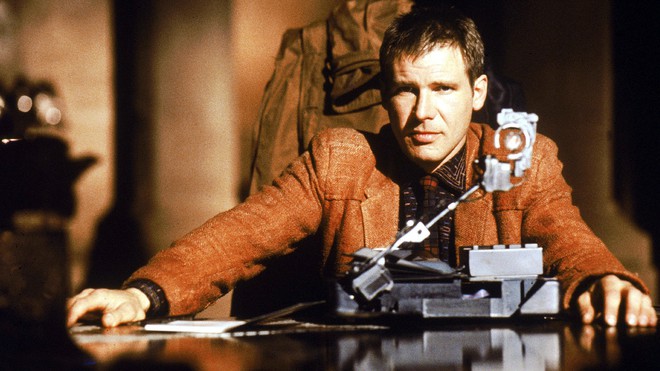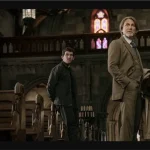“Blade Runner” (1982)

“Blade Runner,” directed by Ridley Scott and released in 1982, is a seminal science fiction film that has left an indelible mark on cinematic history. Based on Philip K. Dick’s novel “Do Androids Dream of Electric Sheep?”, the film is renowned for its groundbreaking visual effects, atmospheric noir setting, and thought-provoking exploration of what it means to be human.

The narrative of “Blade Runner” unfolds in a dystopian future Los Angeles in 2019, where synthetic humans known as replicants are bio-engineered by the powerful Tyrell Corporation to serve humanity in off-world colonies. When a group of rogue replicants led by Roy Batty (played by Rutger Hauer) escapes back to Earth, ex-blade runner Rick Deckard (played by Harrison Ford) is reluctantly pulled out of retirement to track them down and “retire” them.
Central to the film’s narrative is Deckard’s existential journey as he confronts the ethical implications of his job and grapples with the humanity of the replicants he hunts. The film raises profound questions about identity, empathy, and the nature of consciousness, challenging viewers to reconsider their perceptions of what defines life and personhood.

Thematically, “Blade Runner” explores the consequences of unchecked technological advancement and the blurring of boundaries between humanity and artificial intelligence. The replicants, portrayed with complex emotions and desires, serve as mirrors to the human characters, highlighting the fragility and beauty of life in a world dominated by corporate greed and moral ambiguity.
Harrison Ford delivers a nuanced performance as Rick Deckard, portraying the character’s world-weary cynicism and moral ambiguity with depth and introspection. Ford’s portrayal captures Deckard’s internal conflict as he questions his role in hunting down replicants while grappling with his own identity and humanity.

Rutger Hauer delivers a memorable performance as Roy Batty, the charismatic and philosophical leader of the renegade replicants. Hauer’s portrayal imbues Batty with a tragic sense of existential longing and defiance, culminating in one of cinema’s most iconic monologues that poignantly reflects on the fleeting nature of life and memories.
Visually, “Blade Runner” is characterized by its atmospheric cinematography, futuristic production design, and evocative use of light and shadow. The film’s neo-noir aesthetic, influenced by film noir classics and dystopian visions of the future, creates a hauntingly immersive world that resonates with timeless themes of alienation and technological anxiety.

The film’s visual effects, overseen by Douglas Trumbull and Syd Mead, were groundbreaking for their time and continue to inspire filmmakers and audiences alike. From the towering skyscrapers of future Los Angeles to the rain-soaked streets illuminated by neon lights, “Blade Runner” remains a visual tour de force that transports viewers to a mesmerizing and foreboding future.
The screenplay, written by Hampton Fancher and David Peoples, skillfully adapts Philip K. Dick’s existential themes and noir sensibilities into a compelling narrative that challenges conventions of the sci-fi genre. Dialogues are rich with philosophical undertones and introspective reflections, offering profound insights into the human condition and the nature of artificial intelligence.

Critically acclaimed for its visionary storytelling and thematic depth, “Blade Runner” has garnered a cult following and continues to influence generations of filmmakers and storytellers. The film’s exploration of ethical dilemmas, moral ambiguity, and the search for meaning in a technologically driven world remains as relevant today as it was upon its release.
In conclusion, “Blade Runner” (1982) stands as a timeless masterpiece of science fiction cinema that transcends its genre roots to explore profound questions about what it means to be human. Through its mesmerizing visuals, evocative performances, and thought-provoking themes, the film invites viewers on a philosophical journey into the heart of humanity’s future and the essence of identity.











